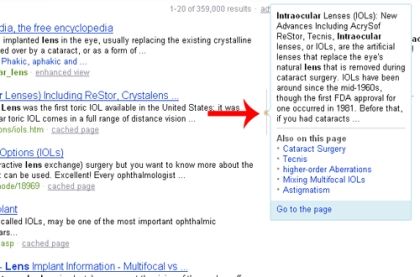Filed under: Bing, Google, Internet Marketing, Search Engines, web marketing | Tags: Bing, Google, google analytics, optimization for bing, search engine, search engine monopoly, SEO for bing, yahoo
Let me say this first: I don’t think Bing is ultimately going to rival Google as the most used search engine. I do, however, think that Bing has some interesting ideas and has made a strong start in the market. ComScore released data for Bing’s first week, and it looks like they have a great boost in users willing to switch to Bing from other search engines – at least, for now. According to Mike Hurt, comScore senior vice president, “The ultimate performance of Bing depends on the extent to which it generates more trial through its extensive launch campaign and whether it retains those trial users.”
In an interview with Fox Business (an interesting watch, I highly recommend it) in which Bing was discussed, Eric Schmidt stated that, “Well [Bing is] not the first entry from Microsoft, they do this about once a year. And from Bing’s perspective, they have a bunch of new ideas, and there’s some things that are missing. … Google is literally one click away. Since Bing’s arrival, for example, people have been switching to try it, and then they switch back. It is very easy to switch from one to the other.” I think he’s right to be secure about Google’s future. Schmidt goes on to talk about how Google has a different strategy than that of Yahoo or Bing, and I agree with him here as well.
I think that Bing poses a great “what if” to the SEO industry, and I think it’s a best practice to be prepared for what search engines may come. Bing does have a very different strategy, and it will make for a very different optimization strategy if Bing should ever succeed Google. Bing is indeed already outpacing Yahoo results in Google Analytics for many developers’ websites.
One thing that is different about Bing is that they list a trio of results for related keywords, as well as your original keywords. In my example search for the term “intraocular lens,” websites are not only competing for top results for “intraocular lens,” but also “Types of Intraocular Lens,” “Intraocular Lens Cost,” “Intraocular Lens Procedure,” etc. Sites that effectively target all these keywords will appear multiple times in one page, whereas sites who normally appear 4th or lower for these keywords are practically invisible.
Something else I noticed about Bing that could pose an interesting possibility for optimizers is that Bing can refer users to other pages within your site in a much cleaner, somewhat more consistent format than Google. Using the same example, I hovered over a link to allaboutvision.com on the right side of the screen.

See those “Also on this page” links? Those are links on your page that have been nicely extracted and bulleted for users to click through. I believe this is why many users are seeing an increase in Bing referrals over Bing organic results in Analytics. Those clicks count as referrals, whereas the organic results count as, well, organic results. This speaks worlds for how a great internal linking structure could become very important (or rather, more important than it already is) if search engines that practice algorithms like Bing’s come into play.
What do you think of Bing? How is it showing up in your Analytics? I’d love to hear about it!
2 Comments so far
Leave a comment
I’ve been trying out Bing for several days, and I like it much more than Google. So I switched. I realize that I am in the minority, but so what. Not everybody uses Google, although conventional wisdom assumes that everyone does.
Comment by wigglesworth June 13, 2009 @ 12:17 pmSeveral people at my office actually say that they love Bing. I’ll be interested to see how long that crush lasts.
I personally have been somewhat disappointed by Bing’s results for my searches, but then half the time I’m only doing complicated searches intentionally trying to trip Bing up.
My favorite is to do a Bing local search for “microsoft”. You’ll get all kinds of things on there – Gamestop, Staples and an Accounting and Business School are some examples. I get that Gamestop and Staples sell Microsoft products, but that doesn’t explain the school’s listing, and frankly, if I had wanted to search for Microsoft products I would have been specific to which product.
If I’m searching “microsoft” you’d think I’d be looking for Microsoft’s various offices, which is exactly what Google local shows you. You can also do a Google local search for “google” and you’ll find offices as well. Whereas when you search Bing for “google”, you’ll find Oogles-N-Googles, a party planning store that is located oddly close to where I live and work… hm.
Comment by Princess Zelda June 25, 2009 @ 3:32 am